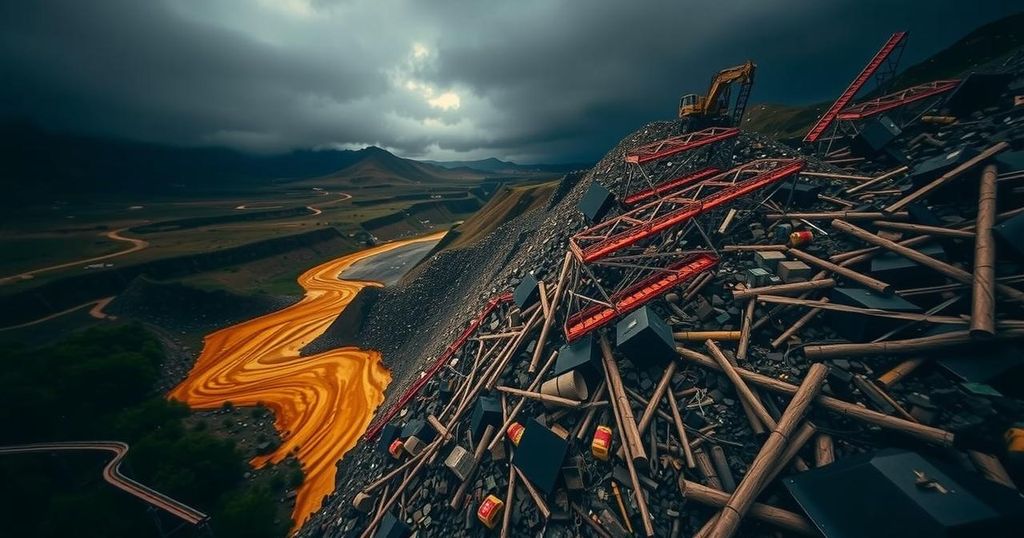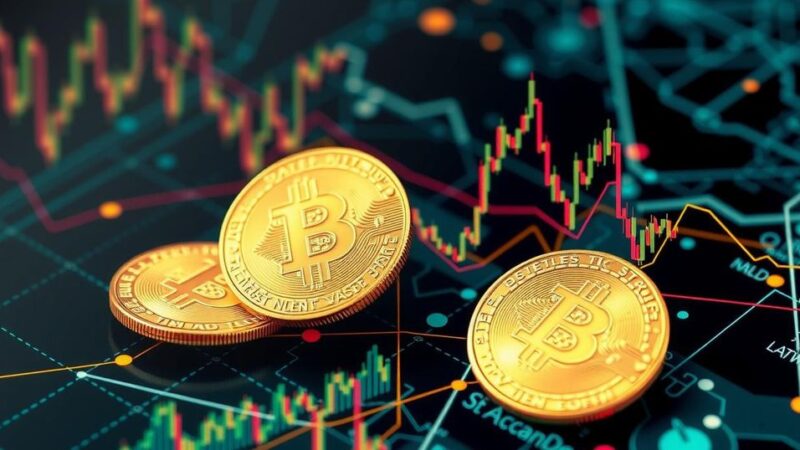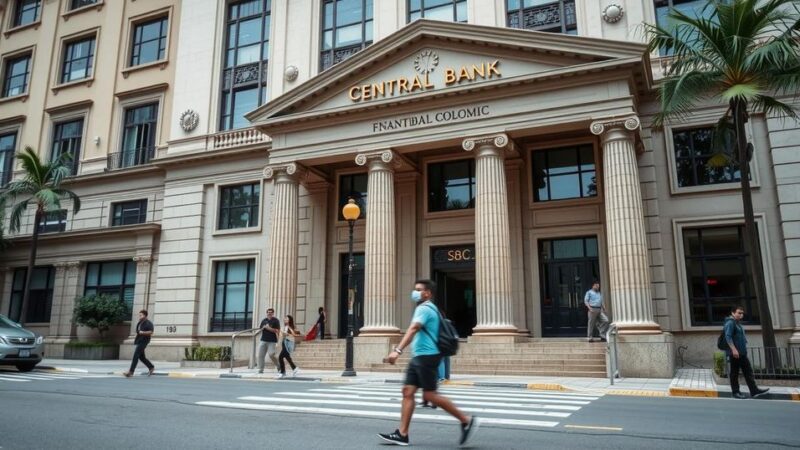Peru’s attempts to regulate its mining sector through the Registro Integral de Formalización Minera (Reinfo) have faced criticism for facilitating illegal mining. Concerns about political interference and rising violence linked to illegal operations compound these challenges. Recent investigations highlight significant discrepancies in gold production, resulting in environmental degradation and economic losses. The ongoing protests signify the urgent need for comprehensive reforms to effectively manage both illegal mining and the legitimate mining industry.
The mining sector in Peru stands at a critical juncture as discussions increase regarding the Registro Integral de Formalización Minera (Reinfo). Established in 2012, Reinfo was intended to formalize small-scale and artisanal miners operating outside the law. However, it now faces backlash for potentially facilitating illegal mining laundering, undermining its original purpose. Investigations from 2021 to 2023 revealed that over 5,800 registered entities failed to provide mandatory gold production reports, pointing to the program’s enforcement weaknesses and leading environmental prosecutors to denounce it as ineffective.
In Peru’s Congress, lawmakers are sharply divided on the Reinfo’s future, with a recent proposal to extend its validity until June 2025 sparking intense debate. Critics, including Congresswoman Diana Gonzales, have characterized the extension as “a gateway for criminal activities,” highlighting profound concerns over insufficient oversight and excessive legal exemptions for registered miners. Adding to the complexity is lawmaker Eduardo Salhuana, whose ties to informal mining have raised alarms about the political influences affecting mining policies in Peru.
The rampant illegal mining in Peru, separate from informal mining, poses substantial challenges. Operated by organized crime, this illicit enterprise generates over $8.2 billion annually, exceeding the profits of the narcotics trade. Investigations have unveiled alarming discrepancies in gold production figures; government reports indicated 1.4 tonnes in 2023, yet independent studies revealed a staggering 8.5 tonnes. The environmental ramifications include significant deforestation, destruction of over 100,000 hectares of forest, and mercury contamination threatening local ecosystems. In the first half of 2023, mining tax revenues dropped by 54%, amounting to approximately PEN 7.2 billion, illustrating the severe economic impact of illegal mining.
The repercussions of illegal mining extend beyond the environment, deeply affecting local communities, particularly indigenous groups. Notably, the tragic murder of park ranger Victorio Dariquebe Gerewa, who dedicated his life to combating illegal mining, underscores the human costs associated with this conflict. His death has triggered outcry among indigenous communities as they confront the persistent threats posed by illegal miners. Increasing violence, highlighted by repeated attacks on the Poderosa gold mine, has prompted the government to declare a state of emergency in areas afflicted by criminal gangs linked to illegal gold trading, although efforts to combat the violence are hindered by inadequate financial resources and legal limitations.
The ongoing conflict concerning Reinfo has catalyzed widespread protests, with small-scale miners rallying for a two-year extension to facilitate further formalization efforts. The National Federation of Small-Scale and Artisanal Miners advocates for this cause, revealing the precarious balance Peru must achieve in supporting legitimate miners while addressing the dire environmental and criminal consequences stemming from uncontrolled mining activities. In light of these complex issues, a concerted effort is necessary to implement decisive reforms. Without effective measures to confront the root causes of illegal mining, Peru risks experiencing further degradation of its environment and the solidification of illicit mining practices within its economy.
Peru’s mining sector requires robust regulatory measures to ensure effective management of its resources while fostering sustainable practices. The current state of affairs signifies a pivotal moment wherein policymakers must prioritize transparency and accountability. Only through comprehensive reforms can Peru hope to safeguard its environmental integrity and support the communities adversely affected by illegal mining operations.
The topic revolves around the challenges faced by Peru in regulating its mining sector, particularly concerning informal and illegal operations. The Registro Integral de Formalización Minera (Reinfo) was created to incorporate informal miners into the legal framework. However, it has come under scrutiny for allegedly facilitating illegal activities rather than curbing them. Furthermore, illegal mining poses significant environmental threats and socioeconomic consequences, not only in Peru but also across South America. The situation is exacerbated by political influences and violence associated with illegal mining operations, creating a complex landscape for reform and regulation.
In conclusion, Peru’s mining sector stands at a critical crossroads, marked by the ongoing debates over the efficacy of the Reinfo program and the pervasive issue of illegal mining. The combination of insufficient regulatory oversight, political influences, and environmental degradation necessitates urgent reforms to address the multifaceted challenges posed by this sector. To prevent further ecological damage and support affected communities, a comprehensive and transparent approach to mining regulation is imperative.
Original Source: www.intellinews.com







